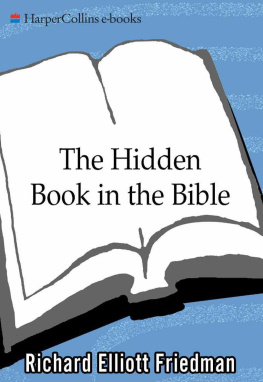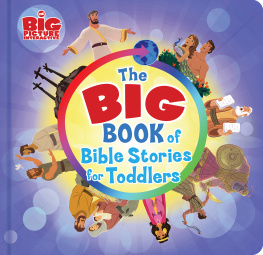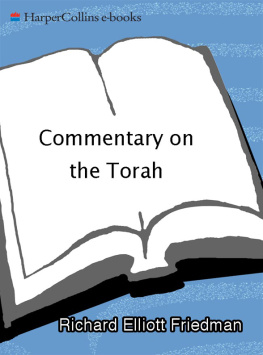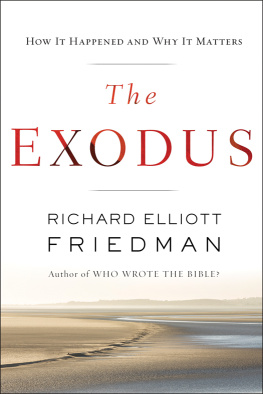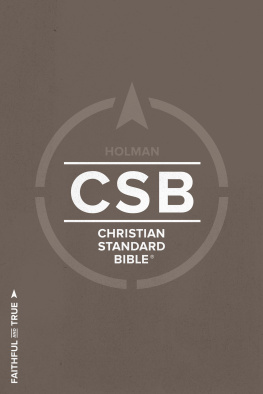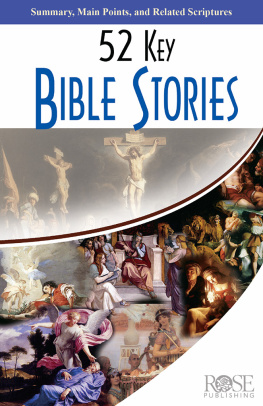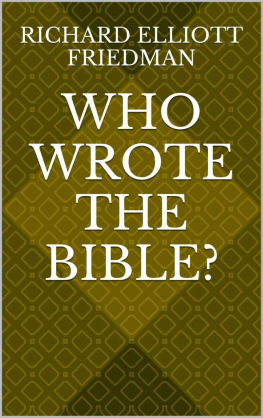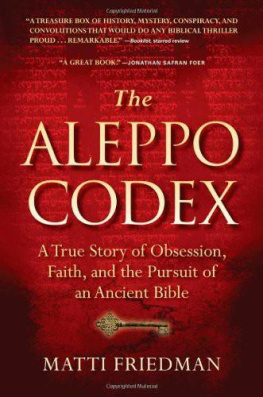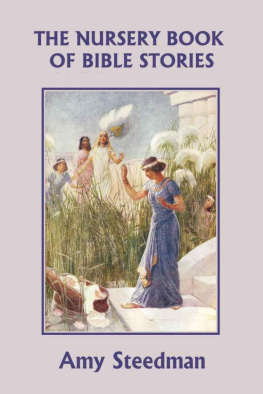Richard Elliott Friedman

This book is dedicated to my beloved daughter
Jesse Rebekah Friedman
who has brought me so much happiness
Contents
I arrived at this discovery twelve years ago. Because of its potential significance, I proceeded extremely slowly and cautiously. I passed it before as many colleagues as possible to get their reactions and criticism. I first presented it as a paper before the Biblical Colloquium, the forty-year-old distinguished society of biblical scholars, at its annual meeting held at Princeton University in 1986. I then presented it to seminars at the University of Cambridge; Yale University; the University of California, Berkeley; the University of California, San Diego; the Hebrew University in Jerusalem; and the American Schools of Oriental Research at the Albright Institute in Jerusalem. The overall response was encouraging. I learned much from criticisms that were raised, and I addressed them in subsequent research, and the case became progressively clearer as a result. The enthusiasm of the response grew over the course of the presentations. I also tried out the idea at meetings of clergy and in open lectures at universities and to the public. And I used my best, time-tested means of working out a new idea: I gave a course on the material and worked through it with my students.
The twelve years that it has taken have been well worth it. I present the restored work that appears in this book with confidence that it is in fact the first great prose work of world literature. I have tried to present it in such a way that both laypersons and scholars will be able to judge the evidence for themselves and see its remarkable unity.
I am particularly grateful to my colleagues in San Diego at the University of California: David Goodblatt, Thomas Levy, William Propp, and especially our senior colleague, David Noel Freedman. It is remarkable fortune to have such a group of admirable scholars right in ones own backyard, to share and test ideas, to catch mistakes, and to encourage one another.
The editor of this book, at Harper Collins, is Mark Chimsky. The work benefited from his superb skills and understanding.
Elaine Markson, my literary agent, nurtured the work from start to finish.
And, as always, my wife, the legal anthropologist, listened patiently to things that are not in her field, and, as always, improvement resulted from her good sense.
And so I am grateful to the many readers and listeners who refined this work by their reactions, comments, and wisdom. I hope that, with their help, I have done justice to the great anonymous author who gave us this treasure.
Richard Elliott Friedman
Jerusalem
April 1998
A
GREAT WORK LIES EMBEDDED IN THE B IBLE, A CREATION THAT WE CAN TRACE TO A SINGLE AUTHOR . A ND I BELIEVE THAT WE CAN ESTABLISH THAT IT IS OF great antiquity: it was composed nearly three thousand years agoso it is indeed nothing less than the first work of prose. Call it the first novel if you think it is fiction, or the first history if you think it is factual. Actually, it is a merger of both. But, either way, it is the first. There is no long work of prose before this anywhere on earth, East or West, so far as I know. We know of poetry that is earlier, but this is the oldest prose literature: a long, beautiful, exciting story. And the astonishing thing is that, even though it is the earliest lengthy prose composition known to us, it is far from a rudimentary, primitive first attempt at writing. It has the kind of qualities that we find in the greatest literature the world has produced. Indeed, scholars of the Bible and of comparative literature have compared individual parts of it to Shakespeare and to Homer. Those scholars were right, but they were barely at the threshold of the full work, a composition whose unity and brilliant connections have been hidden by the editorial and canonical process that produced the Bible.
This hidden book was originally a united story, but it was cut up by the Bibles editors, and then other stories, laws, and poetry were spliced into it and around it. And so the divided pieces of this saga are now spread out through nine books of the Bible, from Genesis to the first two chapters of Kings. What I have done is to separate the original text from all of those other writings that have surrounded it. Imagine that such a discovery had been made through archaeology instead of in the less romantic setting of biblical scholarship. And imagine that you had the good fortune to be in the archaeologists office. He goes over to the file drawer and says, Oh, did you want to see it? Wouldnt you want to read it immediately? That is what this book purports to be: the opportunity to read this work that no one has read for almost three millennia. If we had just discovered a work of this quality and this length archaeologically, we would be impressed and excited. But something even more impressive has happened. This masterpiece has been under our eyes, laced in the fabric of the best known book in the world, for thousands of years. And it was not just a part of the Bible. It was the heart of the Bible, the core work. The Bibles other texts were added to it and assembled around it.
Some people praise the Bibles literary artistry. Others are interested in it for history, with some believing that it is entirely historical and others weighing each of its reports critically. Still other people are most interested in the Bible for theology, trying to make sense of its conception of Godand its conception of the relationship between God and humans. The work of the first prose writer displays greatness in each of these arenas. In artistry and substance, it is among the great works of literature of all time. In terms of history, it is the first known attempt at history writingand is impressive for such an early attempt. And, theologically, its conception of the relationship between God and humankind affected the course of virtually all subsequent ideas of God in Western religion.
Here is a story that begins in the day that YHWH (God) made earth and skies and ends with divine promises fulfilled and with humans taking responsibility for the land that their creator has promised them. Here is a return to the foundation, to the original conception of God and humanitybefore we added layers and layers of later conceptions to it. All those layers made it a rich and complex thing. But there is something pure, spontaneous, and beautiful about the original thing. And I think that it can be enlightening and exciting for our age. For those who do not know the Bible well, this is an entry into it from its original form. For those who do know the Bible well, to read this account is to experience the feeling of being close to the Bibles heart. The past two centuries of biblical scholarship sought to uncover the process that produced the Bible. Now, after twenty years in this field, I have a new sense of where much of that scholarship was going: to bring us back to where we could experience that process. When those of us who know the Bible and its history well read this text, we can feel the Bible growing up around it. Critical scholarship has been used by some to chop up the Bible, to strip away its Bible-ness. But, perhaps unknown even to those who contributed to it, biblical research was going somewhere else. It was leading us back to the experience of the process of the formation of the Bible, like watching a time-lapse film of a blossoming flower.

